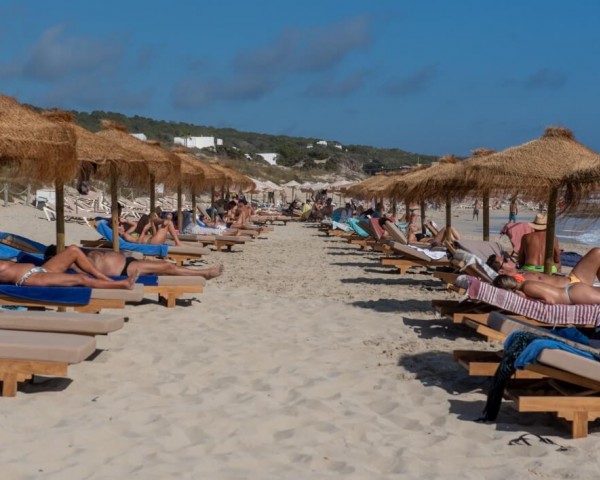
Summer season in Spain: 17 Million Vacationers Anticipated by the Nation
Fernando Valdés, the Spanish Secretary of State for Tourism, expects 16.9 million international arrivals in Spain this summer, only 45% of those arriving in the same period of 2019, but 2.7 times more than in summer 2020.
This forecast does not take into account the fact that the Balearic Islands will soon be marked green in the UK traffic light system for travel, nor changes that are taking place in this regard in other Spanish travel destinations.
The forecast was part of a report by the Senate Commission on measures taken to deal with the crisis in the tourism industry caused by the pandemic.
The report highlights the importance of the German market as the forecast for this summer expects 77% of Germans who visited Spain in 2019, i.e. around 3.8 million tourists.
During his statement, Valdés shared key economic data such as the decline in the number of workers in the sector who are on the Spanish Holiday Program (ERTE) to 265,812 when 377,816 workers were on leave last December.
According to Valdés, the social security obligation of industrial workers is also showing signs of gradual recovery, having exceeded 2 million in April.
Taking into account the scheduled flights from Aena airports for the coming weeks, there will be a gradual improvement that will account for 64% of the activity in the same period of 2019 as of July 12th.
According to the latest Mastercard report “Recovery Insights: Ready for take off?”, Domestic flights in Spain are already 132% higher than before the pandemic. This ensures that in Spain, business travel has increased the most, with a recovery of 83%, while leisure travel is almost thirty percentage points behind (54%).
Although local travel shows a significant increase, international flights are still a long way from recapturing pre-Covid volume as reservations were at 62% of 2019 levels.
According to the Spanish online travel agency Destinia, hotel reservations for Spain in July and August already reached 79% of the hotel reservations registered in 2019 up to the same month with an average duration slightly higher than in the situation before Covid (4.94 nights).
Prices per night in summer in Spain will decrease by 8% compared to 2019, especially in July where the average price per night is 10% lower, from around 140 euros per night to currently 125 euros.
However, the positive development in reservations cannot be transferred to foreign tourism to Spain, as in 2020 23% of reservations were for foreign tourists, but currently it is 12%.
There was an increase in non-hotel stays from 0 to 2.7 million overnight stays, a decrease of 46% in the first four months of 2021 compared to the same period in 2020, which was badly affected by the third wave of Coronavirus infections.
The Secretary of State for Tourism also pointed out that Spain needs to address the main weaknesses of its tourism-dependent economy, particularly its high seasonality.
In 2019, 45% of trips took place between June and September. In destinations like the Balearic Islands it is 63%. For this reason, the minister said that the fight against depopulation is the main objective in order to ensure the correct territorial balance of economic activity.
Valdés explained that tourism activity is particularly concentrated in some areas, with 12 cities receiving more than 1 million visitors a year, with 8 of the largest coastal cities making up only 0.92% of the region but welcoming 11 million tourists, which is 13.5 % of total visits.



